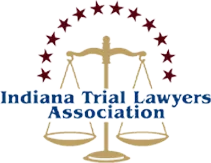Drug Possession
DUI
Client Was Unable to Drive Following DUIs
Result
Full license restoration and driving privileges were successfully reinstated after meeting all requirements.
Theft
Defendant Accused of Theft Faces Severe Penalties
Result
After investigation, negotiation with the State of Indiana, and working with the Court, charges were dropped.
Misdemeanor Offense
Accused Faces Harsh Sentencing for a Minor Offense
Result
Despite facing harsh sentencing for a minor offense, our legal team argued for a reduced sentence, arguing mitigating factors.
Northwest Indiana Drug Crime Lawyer
If you are facing drug charges in Indiana, you should hire an experienced criminal defense lawyer as soon as possible. A seasoned drug possession attorney can help you avoid devastating legal consequences and protect your future.
At Worthley Law, we will commit all our knowledge and resources to help you achieve the best possible outcome in your drug case. Mark Worthley, our criminal defense lawyer and former deputy prosecutor, represents clients in Valparaiso, Indiana, and the surrounding areas.
For a free consultation, call us at Worthley Law now.
For help with substance abuse, please call 800-662-HELP (4357) to reach out to SAMHSA National Helpline.
How Our Team at Worthley Law Can Help with Criminal Drug Charges in Indiana
Indiana’s drug laws are among the strictest in the United States. Working with the right drug possession defense lawyer can make a tremendous difference in your verdict and the sentencing in your case. While every case is different, and the outcome may depend on many variables, here is what our team at Worthley Law can do on your behalf.
- Evaluate the option of a plea bargain. A plea bargain can help reduce the sentence in some drug cases. Attorney Mark Worthley can leverage his experience as a former deputy prosecutor when negotiating plea bargains.
- Fight for case dismissal or diversion. Depending on the circumstances of your case, we may be able to achieve a successful case dismissal. If this is your first drug conviction, we can negotiate for replacing a jail sentence with a treatment program.
- Protect your freedom. If you are already under arrest, our team can evaluate your case and look for any legal means to get you out of jail.
- Suppress unlawful evidence. The police must adhere to specific procedures when sourcing evidence. If a police officer employed illegal practices, we can file a motion to suppress evidence.
The Potential Consequences of a Drug Conviction in Indiana
A drug conviction can stay on your criminal record for years and may adversely impact your future in many ways, especially if you serve time in prison. Whether your case results in a misdemeanor or felony conviction, you may face:
- Difficulties in obtaining rental housing if a landlord runs a background check on you
- Obstacles when trying to qualify for a mortgage, a student loan, or other types of financing
- Loss of your current employment
- Limited future career opportunities, especially in fields like nursing, commercial driving, or any jobs that involve working with children
- Driver’s license suspension
- Heavy fines and forfeiture of assets allegedly related to criminal activity
- Personal, marital, and family issues, including loss of custody of your children
- A permanent stain on your reputation and your standing in the local community
Controlled Substance Categories In Indiana
The sentence in each drug case depends on the specific type of drug in the convict’s possession. Indiana law divides controlled substances into the following categories or schedules:
- Schedule I: Substances with no recognized medical purpose and very high abuse potential, like heroin, LSD, ecstasy, peyote, mushrooms, and marijuana.
- Schedule II: Substances with limited medical purposes and high abuse potential, like cocaine, opium, morphine, methamphetamines, methadone, hydrocodone, Fentanyl, Demerol, and OxyContin.
- Schedule III: Substances with accepted medical purposes and lower abuse potential compared to Schedule I and II substances. This category includes anabolic steroids, ketamine, testosterone, and drugs that contain less than 90 mg of codeine in a single dose.
- Schedule IV: Substances with recognized medical uses and lower abuse potential than Schedules I-III. Drugs like Xanax, Valium, Ambien, Tramadol, Ativan, and Klonopin fall under this category.
- Schedule V: Widely used substances with low abuse potential, such as cough medicines that contain less than 200 mg of codeine. Examples include Lyrica, Lomotil, Motofen, and Robitussin AC.
What Sentence Can I Expect If an Indiana Court Convicts Me of Drug Possession?
Compared to other states, Indiana imposes some of the harshest penalties for drug possession. Individuals convicted of possessing drugs may face the following legal consequences:
- Schedule I and Schedule II Drugs: Possessing Schedule I and II drugs usually counts as a Level Six felony. In Indiana, this may result in a prison sentence of up to 2.5 years and a fine of up to $10,000. Penalties may be higher under certain aggravating circumstances—e.g., carrying drugs near a school or possessing a substantial amount of an illegal substance.
- Schedule III-V Drugs: Penalties for possessing schedule III-V drugs will depend on the defendant’s criminal history, the amount of substance in possession, and other circumstances. The minimum charge would be a misdemeanor.
- Marijuana: Possessing less than 30 grams of marijuana without prior drug convictions typically counts as a Class B misdemeanor, which may result in a maximum fine of $1,000 and a jail sentence of up to 180 days. A prior drug conviction could elevate the offense to a Class A misdemeanor, with potential penalties of a one-year prison sentence and up to $5,000 in fines. Possessing over 30 grams of marijuana with a prior drug conviction counts as a Level Six felony and may lead to imprisonment of over two years and up to $10,000 in fines.
- Drug Paraphernalia: Drug paraphernalia includes any equipment used in the production or consumption of illegal drugs, such as pipes, bongs, or cigarette papers. Possessing drug paraphernalia could lead to 60 days in prison and a fine of $500. Prior paraphernalia convictions would increase the charge to a Class A misdemeanor. Unlawful syringe possession is a more serious criminal offense that counts as a Level Six felony.
If you’re facing drug charges, get in touch with drug possession lawyer Mark Worthley in Valparaiso, Indiana. Quick action can help us at Worthley Law protect your rights and avoid or soften a potential sentence.
Effective Defense Strategies We Use for Drug Charges in Valparaiso, IN
Attorney Mark Worthley and the skilled legal team at Worthley Law know how to present an effective defense in Indiana drug cases. Here are some defense strategies we use for drug charges:
- Police entrapment. In a police entrapment scenario, police officers use fraud, threats, harassment, or coercion to induce someone to commit a crime, like selling an illegal drug. Our legal team can use the argument of police entrapment as a part of a viable defense strategy.
- Missing evidence. We know how to identify missing links in the charges against you. For example, if the chain of custody (tracking of the evidence and the persons who handled it) is incomplete, we can spot and use these factors to defend you against drug charges.
- Insufficient evidentiary support. Not all evidence is black and white. If the police used an unreliable drug dog or the prosecution presented an untrustworthy witness, our legal team can flag weak evidence and point out reasonable doubt in your case.
- Fourth Amendment. The Fourth Amendment prohibits law enforcement officers from conducting unlawful searches and seizures. Arresting a person without a valid warrant or stopping a person to search their car without probable cause violates the Fourth Amendment. We can take legal action to exclude evidence obtained through an unlawful search and seizure.
- Unwitting possession. Under relevant circumstances, we can argue that you did not know you possessed the illegal substance. For example, this may apply if you were driving a borrowed vehicle or someone had had a chance to put something in your bag.
- No proof of possession. A defendant’s presence near an illegal drug does not, by itself, mean that the defendant owned the substance. For example, if a police officer arrests you at a party near a table with illicit drugs on it, we may point out that this does not establish proof of possession.
- Prescription defense. If you have a valid prescription for the drug found in your possession, we can use this fact to argue for case dismissal. The same line of defense also applies if the final user of the prescription drug is your spouse or a family member.
Taking Action to Face Drug Charges in Indiana
You can expect many variables to affect the sentence and overall outcome of your Indiana drug crime case. Because of those variables, you must immediately retain an Indiana drug possession defense attorney. If you hire Worthley Law, here are some ways we can help you as we take action on your behalf.
Determine Potential for Plea Bargaining
Some cases may be eligible for a plea bargain and reduced sentence. Our founder, Mark Worthley, is a former Deputy Prosecutor, a skilled negotiator, and a criminal defense lawyer with experience handling plea bargains.
Determine Eligibility for Case Dismissal or Diversion
A case dismissal or diversionary program are two favorable outcomes for a drug case. If you don’t have prior drug convictions and suffer from addiction issues, you may qualify for a treatment program instead of a jail sentence.
Prevent Further Incarceration
We’ll evaluate your case to determine if you can avoid serving any additional days in jail. You can expect our legal team to scrutinize your arrest, looking for any evidence we can use in your favor to prevent further incarceration.
Evaluate Evidentiary Issues
In some instances, the court will exclude some or all the evidence if the police obtained it unlawfully. Our legal team is highly knowledgeable about Indiana’s drug laws, and we’ll use this expertise to explore every possible avenue regarding your case.
Determine Collateral Consequences
Whether it’s a felony or misdemeanor, a drug conviction or incarceration can have severe and long-lasting repercussions on your quality of life, such as:
- Potential denial for rental housing
- Loss of your current job
- Limited future employment opportunities
- Temporary or permanent driver’s license suspension
- Familial issues, such as losing custody of your children
- Paying thousands of dollars in fines
- A sullied reputation within your community
Controlled Substances and Drug Schedules in Indiana
The type of drug in your possession affects the sentence you could receive in court. Here is how Indiana categorizes controlled substances:
-
Schedule I: Schedule I substances have a very high potential for abuse and no accepted medical purpose. Examples include heroin, peyote, marijuana, mushrooms, LSD, and ecstasy.
-
Schedule II: These substances have a high potential for abuse and limited medical purposes. Examples include Fentanyl, Demerol, OxyContin, Adderall, cocaine, opium, methamphetamines, methadone, morphine, Dilaudid, and hydrocodone.
-
Schedule III: Schedule III substances have currently accepted medical uses and a milder potential for abuse than Schedule I and II drugs. Examples include products with less than 90 milligrams of codeine per dosage, like Tylenol with codeine, and other drugs like testosterone, ketamine, and anabolic steroids.
-
Schedule IV: These substances have currently accepted medical uses and a low potential for abuse compared to Schedules I, II, and III. Examples include Tramadol, Xanax, Soma, Valium, Ativan, Klonopin, and Ambien.
-
Schedule V: Schedule V substances have frequent medical uses and low abuse potential. Examples include cough medicines with less than 200 mg of codeine, such as Lyrica, Robitussin AC, Lomotil, and Motofen.
General Sentencing Possibilities for Indiana Drug Charges
As we said earlier, Indiana has some of the harshest drug laws in the nation. So, if you’re currently facing a drug charge, it’s vital to hire an Indiana drug possession lawyer as quickly as possible after your arrest. For example, here are the potential sentences you could face for possession:
- Schedule I and II Drugs: Schedule I and II drug possession penalties vary based on case circumstances, including the type and amount of drugs and where you had them in your possession (i.e., near a school or youth center). However, you’ll face at least a Level Six felony.
- Schedule III, IV, and V Drugs: Penalties depend on your case, criminal history, and how much of the substance was in your possession. However, you could face a misdemeanor charge or worse.
- Marijuana: People with less than 30 grams and no prior drug convictions face a Class B misdemeanor, fines up to $1,000, and up to 180 days in jail. If you have previous drug convictions, the charge increases to a Class A misdemeanor, fines up to $5,000, and up to one year in jail. If you have over thirty grams in your possession and a prior drug conviction, the penalties are even harsher: a Level Six felony charge, fines up to $10,000, and over two years in jail.
- Drug Paraphernalia: Possession of drug paraphernalia (like a pipe) has penalties of up to $500 in fines and 60 days in jail. The charge increases to a Class A misdemeanor if you have a prior paraphernalia conviction. For unlawful syringe possession, you would face a Level Six felony.
Common Defense Strategies for Valparaiso Drug Charges
While this list isn’t all-inclusive, it has the most common defense strategies regarding a drug charge in Indiana:
- Police entrapment
- Missing evidence
- Unlawful search and seizure (4th Amendment)
- Unwitting possession
- Prescription defense
- Insufficient evidentiary support
- No proof of possession
Call Worthley Law: A Trusted Drug Possession Lawyer in Valparaiso, Indiana
When you face drug charges, you need a skilled criminal defense attorney to protect your rights and provide legal advice. Our team at Worthley Law will work with you to create an effective legal strategy and build a powerful defense case.
Take no chances with your future. Call us for a free initial consultation with one of the top-rated criminal defense lawyers in Valparaiso, IN.
Don’t wait for your next court date; call Worthley Law today to schedule a free initial consultation.
If you’re suffering from substance abuse or addiction, please call the SAMHSA National Helpline at 800-662-HELP (4357). It’s never too late to get help and improve your life, starting now.
What Our Real
Clients Are saying







